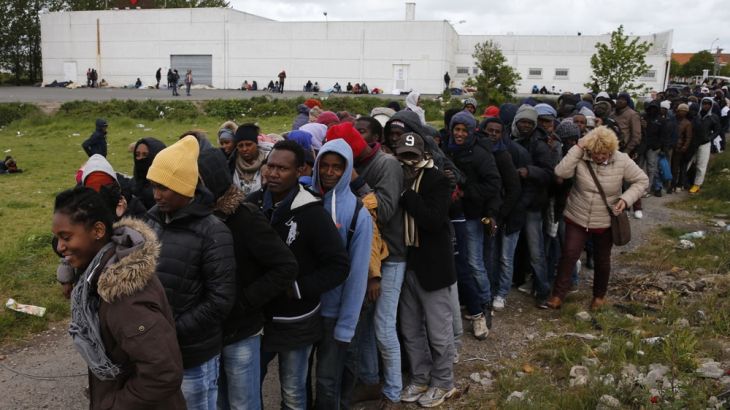Refugee crisis: Senegalese return from Italy
Story of one man who was refused a visa to extend his stay in Italy as Africa takes first steps to implement agreements.

At the Valetta summit in Malta in November, European and African heads of state pledged to halt the flow of refugees and economic migrants and promised new funds to do so.
Now they are taking the first steps to implement their agreements.
Keep reading
list of 4 items‘Mama we’re dying’: Only able to hear her kids in Gaza in their final days
Europe pledges to boost aid to Sudan on unwelcome war anniversary
Birth, death, escape: Three women’s struggle through Sudan’s war
After living in Italy for 17 years, Ndary Sylla was refused a visa extension and was forced to return to Senegal.
“I grew up in Italy. It is like my country,” Sylla told Al Jazeera.
“I love it there. I have friends, family and it was my home but, in the end, my being in Italy was seen as a problem for the state.”
Sylla is now selling Italian ice cream on a beach in Mbour, south of the capital Dakar, years after leaving Senegal to find better-paying work.
Last year, people like Sylla sent back a total of $1.6bn to their relatives in the country, proving that they are one of Senegal’s lifelines.
|
|
In 2015, over a million people were trafficked into the European Union illegally, with thousands dying along the way.
“The area they are transiting through are governed by groups that use the migrants as commodity – they extort them, they extort their family and some are killed. It is a drama that unfolds under no one’s eyes,” said Patricia Danzi, ICRC regional director of Africa.
Last November, African countries acknowledged their shared responsibility in this crisis.
The EU is offering the African Union $1.8bn to fund programmes to better police borders and assist economic migrants to return to their home countries.
Italy is now investing in businesses set up by returning migrants, and sees them as untapped potential who need economic incentives to stay in Senegal.
“We want to create development in this place in a way that Senegalese youngsters can realise their dreams here so that they don’t go away,” says Puasqualino Procacci of the Italian Cooperation in Senegal.
For many of those forced out of Europe – either voluntarily or through deportation – there is a sense of shame associated with returning home, given the expectations of relatives to provide for them and others.